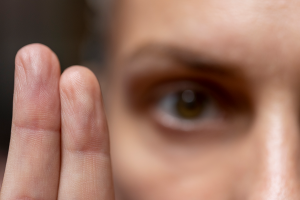Last updated: February 6, 2026
Post-Traumatic Stress Disorder (PTSD) is a condition that affects millions of people worldwide after they experience traumatic events. Naturally, many individuals suffering from PTSD have asked themselves if PTSD can be cured or if it will ever go away.
What Is PTSD?
PTSD is a mental health condition that can develop after a person experiences or witnesses a traumatic event. This may include anything from military combat and natural disasters to personal assaults or accidents. People with PTSD may notice flashbacks or nightmares, intrusive thoughts about the trauma, avoidance of reminders of the event, hyperarousal (feeling on edge, easily startled), or emotional numbness or detachment from others. These symptoms can be persistent and, for some, extremely debilitating. However, that doesn’t mean the condition is a life sentence. PTSD can be managed, and many people go on to live fulfilling lives. But, is it curable?
Can PTSD Be Cured?
The term “cure” implies that the symptoms completely disappear, never to return. While there is no definitive “cure” for PTSD in the traditional sense, it is essential to understand that with the right treatment, people with PTSD can recover significantly and regain control of their lives. For some individuals, symptoms may completely disappear, while for others, they may become more manageable over time. While PTSD doesn’t always go away entirely, with the right interventions, it can be greatly reduced to a point where it no longer interferes with daily functioning.
How To Treat PTSD
There are many effective treatments available for PTSD, which can help individuals manage and even overcome the symptoms. Recovery from PTSD is highly individualized—what works for one person may not work for another. Here are some of the most common and effective treatments:
Trauma-focused CBT
Trauma-focused CBT helps individuals process the traumatic event and change the negative thought patterns associated with it. By gradually confronting their trauma, people can reduce the emotional intensity of their memories and stop avoiding situations that trigger fear or anxiety. It is extremely important that any therapist using cognitive behavioral therapy with trauma survivors be well-versed in using CBT with trauma, as the approach is very different than with other mental health conditions.
Internal Family Systems Therapy (IFS)
IFS is a model of psychotherapy that helps people understand and heal themselves by exploring their different parts and relating them to each other. It offers a clear, non-pathologizing, and empowering method of understanding human problems.
Eye Movement Desensitization and Reprocessing (EMDR)
EMDR is a specialized therapy that involves guided eye movements to help individuals process traumatic memories. It has been shown to reduce the distress associated with traumatic events and help patients cope better over time.
Medication
Medication may help some individuals manage their PTSD symptoms. Antidepressants, such as selective serotonin reuptake inhibitors (SSRIs), are commonly prescribed to help with anxiety, depression, and insomnia related to PTSD.
Group Therapy
Group therapy and support groups provide an opportunity to connect with others who have experienced trauma and can be incredibly therapeutic. Group therapy or support groups provide a sense of community and understanding, which can make coping with PTSD less isolating.
How Effective Is Therapy for PTSD?
While PTSD can be managed effectively, whether or not it “goes away” depends on the individual and the nature of their trauma. Some people experience a significant reduction in symptoms or even complete resolution over time, especially with early and consistent treatment. For others, symptoms may come and go, with periods of stability followed by triggers that cause symptoms to resurface. It’s important to remember that PTSD doesn’t have to define someone’s life, even if symptoms persist. The goal of treatment is to equip individuals with coping skills and strategies to manage their symptoms effectively. Many people with PTSD are able to lead normal, healthy lives once they’ve received the appropriate treatment.
How Long Does PTSD Treatment Take?
Several factors can influence how quickly someone recovers from PTSD or how likely they are to experience long-term symptoms. These include:
- Severity and Type of Trauma: Prolonged or repeated trauma (such as childhood abuse or military combat) may take longer to recover from than a one-time event, such as a car accident.
- Personal History: People with a history of previous trauma, mental health conditions, or substance abuse may have a harder time recovering from PTSD.
- Support System: Having a strong support network of family, friends, or community can greatly enhance recovery. Conversely, isolation or lack of support can make it more challenging to heal.
- Timing of Treatment: Early intervention can play a critical role in reducing the long-term effects of PTSD. The sooner someone receives help after a traumatic event, the better their chances of recovery.
- Coping Strategies: Individuals who develop healthy coping strategies, such as mindfulness, relaxation techniques, or physical activity, are better equipped to manage PTSD symptoms over time.
How Do I Know If I’m Making Progress?
Recovery from PTSD is often a gradual process. Here are some signs that you’re making progress:
- You experience fewer flashbacks, nightmares, or distressing thoughts related to the trauma.
- You find it easier to manage your emotions, including anxiety, anger, and sadness.
- You’re able to engage in activities or go to places that once triggered your PTSD symptoms.
- You feel more connected with loved ones and find it easier to trust others again.
- You’re sleeping better and finding it easier to focus on everyday tasks.
Help for PTSD in Alabama
While there is no “cure” for PTSD in the traditional sense, the condition is highly treatable, and many people recover to the point where PTSD no longer controls their lives. Through a combination of therapy for PTSD, medication, and personal coping strategies, individuals can significantly reduce their symptoms and regain a sense of normalcy. For those living with PTSD, it’s important to seek help and understand that recovery is possible. With time, support, and the right treatment, you can heal from the effects of trauma and lead a fulfilling life.
If you or someone you know needs help treating PTSD, contact us at BATT to learn more about how we can help.







